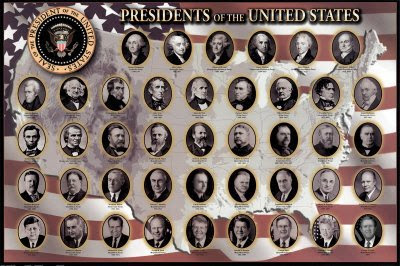
The House of Representatives passed an economic stimulus package on Wednesday without a single Republican vote. The legislation is aimed at helping the economy recover from the ongoing collapse over the past several months. These Republicans, of course, are representatives of what had been the majority party in the legislative and executive branches of government for most of the past eight years and, in no small way, hold responsibility for the current state of the economy. Mitchell Bard sums up the situation:
… Obama's solid victory in November, if nothing else, would make it clear that the bankrupt (literally) policies of the last eight years would no longer be seriously considered as a solution. I certainly knew that the Republicans would try to claw their way back to power, but I never imagined they would pull a Groundhog Day, acting as if the absolute meltdown of the last eight years hadn't happened. After all, by electing Obama, the American people pretty directly rejected the failed ways of doing business.
Of the myriad problems George W. Bush and his enablers in Congress left on Obama's desk, the most pressing is perceived to be the economy. So Obama's first major legislative initiative was the stimulus package. Under the market-cures-all philosophy of the last administration (and, in fairness, every administration going back to Ronald Reagan), the financial system collapsed as the greed and irresponsibility of institutions finally reached a tipping point. But what was even more acute during the last eight years was the historic and devastating redistribution of wealth, whereby Bush's tax cuts for the rich and unfailing support for corporate interests led to a situation where, as former Rep. David Bonior put it on Meet the Press on January 11:
"over the last 20 years, the top 10 percent took 90 percent of the income gains in this -- in the country. And the top 1 percent took roughly 60 percent. And the top 1/10th of 1 percent took 35 percent of that. I mean, it's skewed the wrong way."The system of tax cuts and the like turned the surplus of the Clinton years into a massive deficit, even before the $700 billion financial bailout and current stimulus package came into play. And the Bush years allowed massive gains for the wealthy, all while middle class wages, in real dollars, fell.
So, if nothing else, we should all be in agreement that the Bush years were a debacle, and that the policies of the administration need to be rejected, much like the bake sale/casino night of my analogy.
And yet, on the first major piece of legislation that the popular new president advanced, what did the Republicans in the House do? Suggest a bake sale/casino night.
On the January 11 Meet the Press episode I mentioned above, all of the economists, liberals and conservatives, agreed that some kind of stimulus is necessary to kick-start the economy. Economists will also tell you that if you genuinely want to stimulate consumer spending, tax cuts, especially for the middle class and wealthy, are less effective than government spending, since those tax cuts are more likely to be saved than spent. Programs that aid those in trouble (like food stamps and extended unemployment insurance), as well as programs that create jobs (like infrastructure projects), are far more effective in stimulating consumer spending.
And despite all of this information, not one single Republican member of the House voted for the stimulus bill yesterday. (It still passed, 244-188, with 11 Democrats joining the 177 Republicans in opposing the bill.) Not one. Zero. Zippo. Nada. Nil. None. There wasn't one Republican in the whole House of Representatives who could see his or her way clear to support legislation to help our tanking economy, even if they thought the bill wasn't perfect. And what was the primary objection of the Republicans, based on the GOP's suggested alternative bill (that was voted down by the House)? They wanted more tax cuts.
Seriously? More freakin' tax cuts? What's next? Are they going to be asking for less regulations on Wall Street? Another invasion of Iraq? Were they not watching what happened the last eight years (and, more importantly, what the American people voted for in November)?
***
The bottom line is that this country is in a very dark place right now, and the reason we're there is not a mystery. It is, in large part, the direct result of a set of policies advocated and carried out by the Bush administration. Those policies, including tax cuts for the rich and the facilitation of movement of wealth from the lower and middle classes to the upper class, have failed. While Republicans are free to oppose President Obama's solutions to this mess if they think they have better ideas, merely advocating the old failed policies should not be tolerated.
Obama deserves credit for trying to foster a bipartisan atmosphere in Washington, and I laud his efforts in this regards. But if the Republicans are going to be obstructionist, clinging to failed policies and trying to score political points by keeping the new president from passing the programs he wants (or at least making them look partisan), Obama and the Democrats have to move forward on their own. They have large majorities in both houses and, more importantly, the mandate of a solid presidential election win.
It's time for the House Republicans to offer something useful or shut up and let the rest of us try and undo the mess they helped make. …



